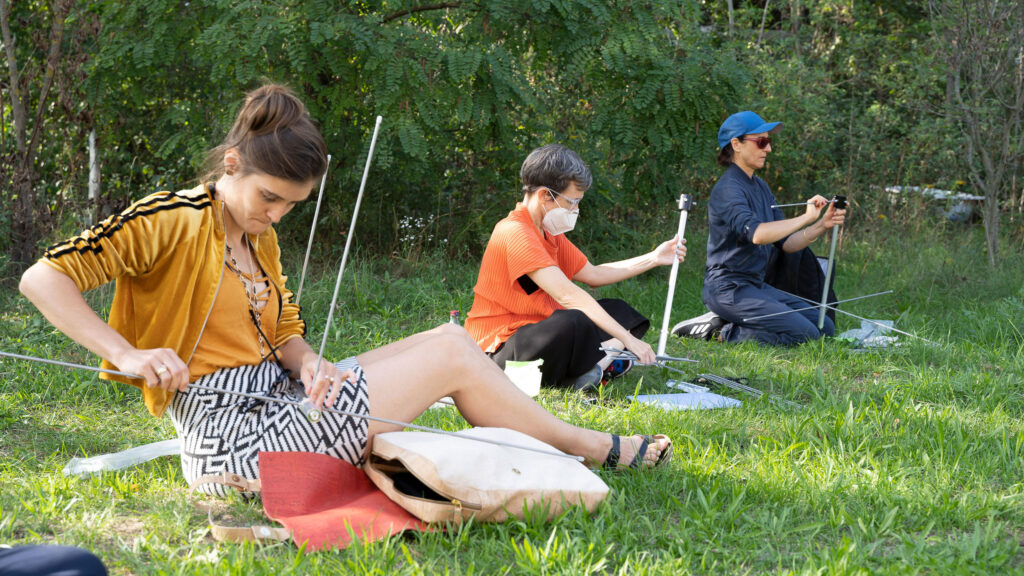
DIY Satellite Ground Station Workshop × Akademie Schloss Solitude
On 18 September 2020, open-weather hosted its first DIY Satellite Ground Station workshop at the Wagenhallen Community Centre in Stuttgart, supported by Akademie Schloss Solitude. Nine participants spent one day thinking about community weather sensing, climate justice, amateur radio and how feminist thinking challenges gendered notions of technology and science. By the end of the workshop, each participant had assembled, tested and successfully deployed their own DIY Satellite Ground Station to capture and decode transmissions from a National Oceanic and Atmospheric Administration (NOAA) satellites.
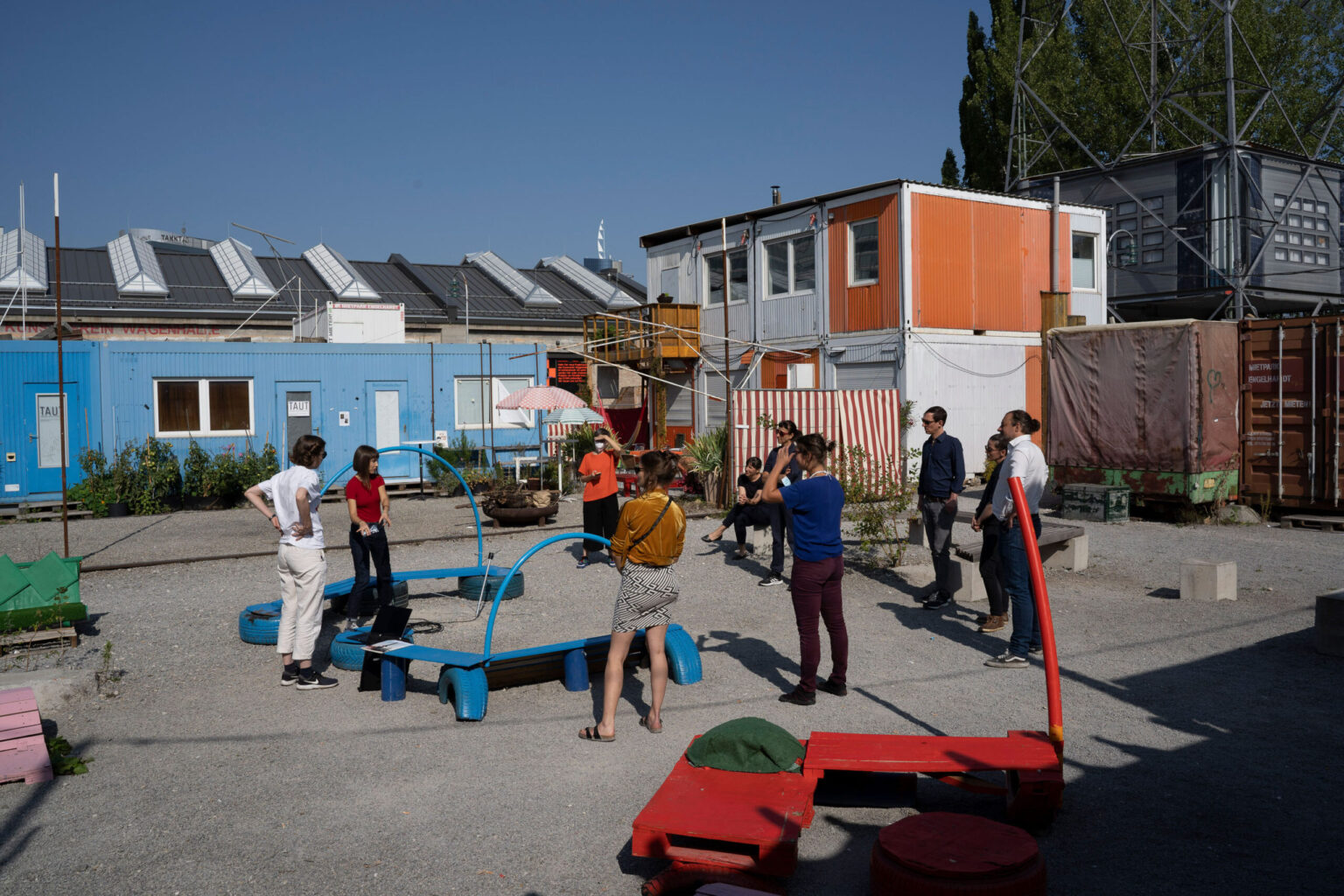
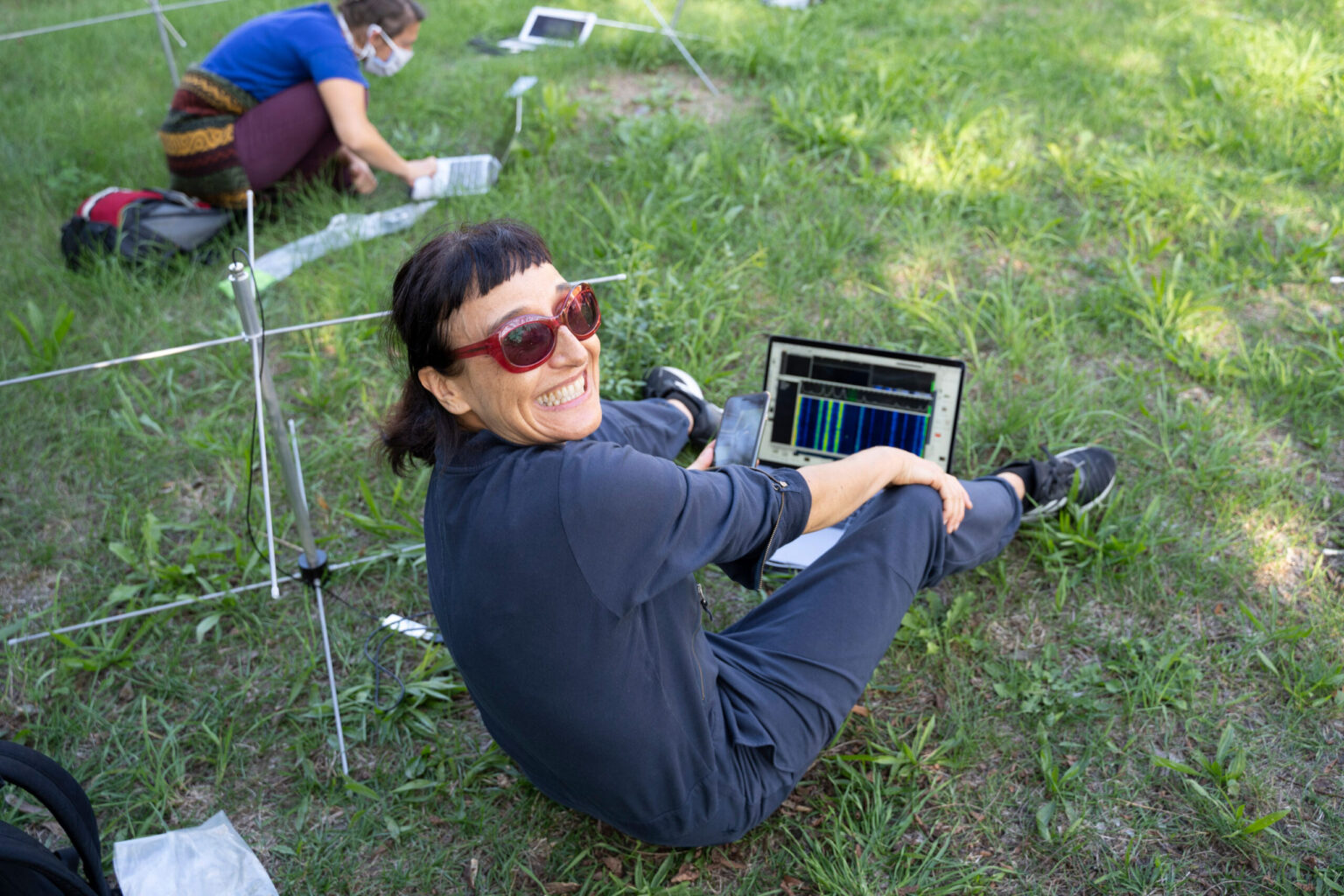
The DIY Satellite Ground Station workshop was part of a two-day event called ‘Sensing Environments with Care: Feminist Practices and Technologies of Embodiment’ supported by Akademie Schloss Solitude, Stuttgart and the Wagenhalle Kunstverein.
The event asked: In what ways does sensing—both embodied and technologically mediated—constitute a practice of environmental care? How do different mediums of ambient attunement, specifically sound and air, call for different ethics and activism?

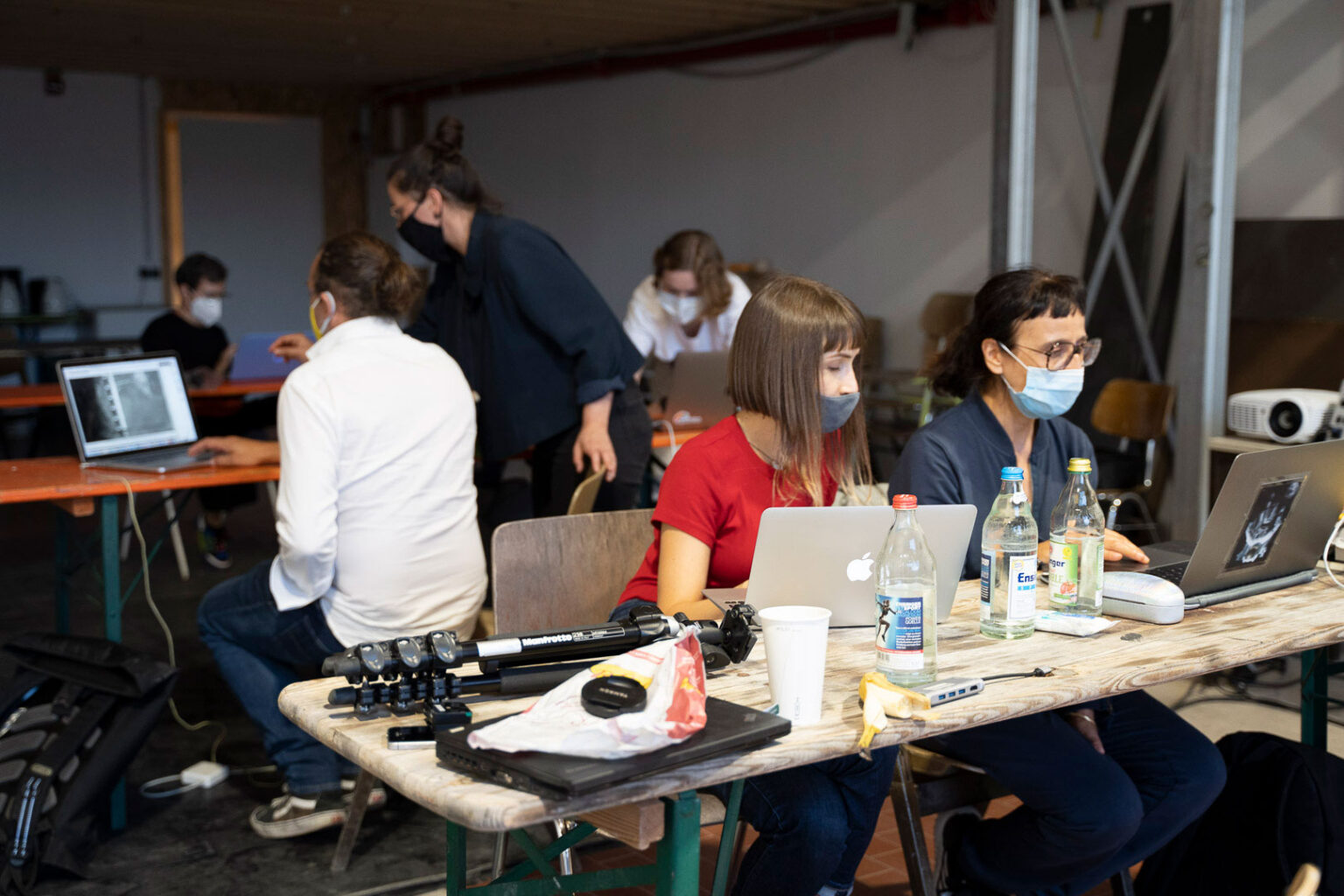
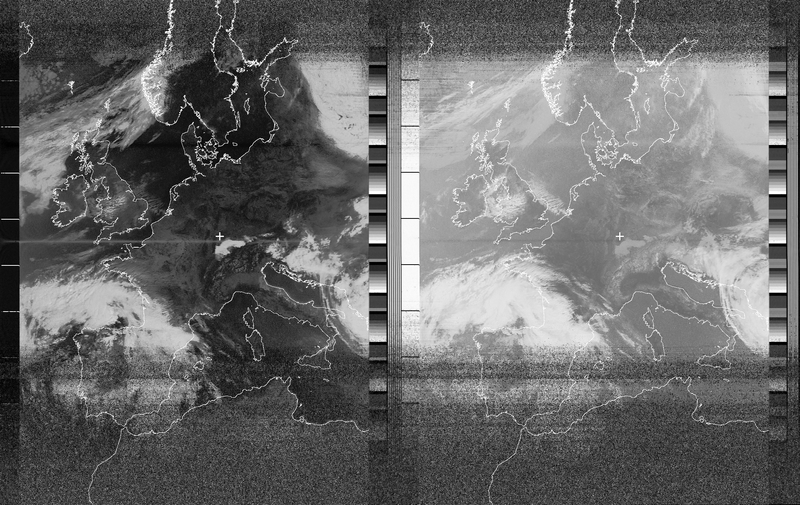
In the first hour of the workshop, open-weather demonstrated the process of capturing a satellite image with a DIY satellite ground station. In the midst of Wagenhallen’s community space, the group oriented their bodies toward the orbit of NOAA-19, a weather satellite launched in February 2009. In the resulting image, the group noticed a large cloud mass hovered over Spain and France, while the Alps were faintly visible in Northern Italy. These features sparked discussions on the local weather in Germany and how it might relate to the meteorological systems of the European continent.
After further describing and analysing the image decoded in the demonstration, the group engaged with the feminist principles behind open-weather and longer histories of feminist DIY and earth-imaging practices. This included a discussion of the politics of location, the role of our bodies, and key questions of accessibility and power in relation to radio and environmental sensing.
Shortly after 6pm, the group assembled in a circle in the Wagenhallen community garden, ahead of the orbit of NOAA 19 over Stuttgart. In sync with each other and the satellite, the group tuned-to and recorded the 11-minute transmission of NOAA 19. The characteristic sound of the satellite, emerging from everyone’s computer speakers, echoed throughout the garden.
The first DIY Satellite Ground Station workshop was an experiment in collective practice, environmental pedagogy and feminist thinking. It tested a model of workshop-leading that has evolved over many years since. Participants were able to keep their kit at the end of the day, and have since continued to decode NOAA satellite passes. Many have contributed to open-weather ‘nowcasts’ and have become long-term collaborators of the project.
Credits
For their generous support, energies and contributions to the hosting of the workshop, open-weather would like to thank Elke aus dem Moore, Sophie-Charlotte Thieroff, Sophia Sadzakov, Helmut Dietz, Sander Wickersheim, Silke Pflüger, Marieanne Roth, Akademie Schloss Solitude and Wagenhalle Kunstverein. For their participation and contributions to the open-weather project, we thank Nerea Calvillo, Naomi Waltham-Smith, Jasmin Schädler, Sybille Neumeyer, Christina Maria Pfeifer, Martina Gunkel, Hannes Schwertfeger, Elise Bienzle and Oliver Storz.